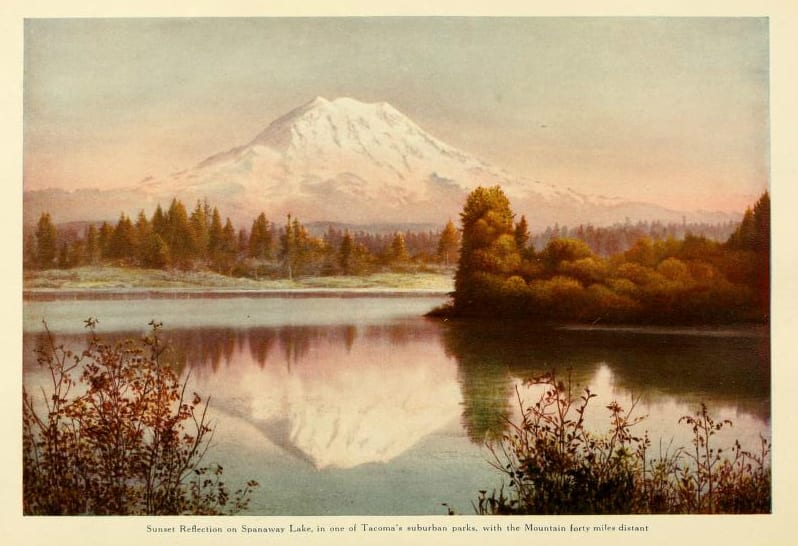
On Monday of this week, I had had the opportunity to present to the IAS Seminar: Interdisciplinary Perspectives on Local History, being taught this quarter by Kim Davenport, and shared these slides:
When we scheduled this presentation awhile ago, I hadn’t realized that it would fall during Open Access Week, but it turned out to be a happy coincidence. It seemed fitting to start off the week by exploring Tacoma history through openly available primary source documents. In lieu of writing an assigned reflection in response to the talk, students have the option of posting materials under the #TacomaPublicDomain hashtag, and it’s been fun to see the materials they’re finding.
For my part, I’d like to do a little bit of reflection (along with my weekly #TacomaPublicDomain post) on why I started this project:
1. It creates a venue to share important, wonderful, or just plain weird sources that are out there. One of the perks of being a librarian is that I often encounter all kinds of strange and useful sources as I help people or perform my work. I’ve often wanted a place where I could I could share these.
2. To keep pointing to the vast storehouse of materials in the public domain. Many of these sources are openly available, but they are not always easily discoverable, even with the best tools at our disposal. Giving more attention to these materials increases their chances of being found again. For this reason, I hope to highlight the search tools as much as the source themselves.1
3. To encourage open cultures within my own institution and profession. In my presentation, I highlight “institutions committed to open culture” as one of the necessary conditions for public domain materials to be widely available. I borrowed the term from a website called Open Culture, but I’m referring to something broader: the practices, attitudes, and mental models that enable organizations and professional communities to recognize how their activities broadly contribute to the public good through openly sharing materials. By poking around these collections, I hope to discover approaches and models that might improve my work locally.
4. Mass digitization raises so many interesting questions about public history and collective memory. How does access to digitized primary sources change public history and our collective memory? What are the economic, social, and political structures that determine what can be found? Why do certain voices and perspectives appear more frequently than others in the public domain? These are some of the questions that linger in the back of my mind as I explore these materials, and artifacts seem a good place to start.2
With this in mind, I’d like to highlight another “The Mountain that Was ‘God'” by John H. Williams:
I first heard about this book from historian Michael Sullivan. The book appears in his blog post “On a Small Tacoma Bookshelf” where he describes the text as a “beautifully illustrated, poetic and ultimately perplexing volume.” I must admit that I’ve mostly flipped through the text, sampling pictures and snippets of text. It does seem to fall into that strange category of late nineteenth and early twentieth century Tacoma booster literature that looks to indigenous language and tradition to make a case for renaming the Mountain.
The book does have stunning photos from Asahel Curtis, Albert Henry Barnes, among others that create a compelling visual portrait that seems both of its time and a reference to the mysterious power of the Mountain. Since the book is in the public domain, I have run a text analysis on it in Voyant Tools and added it to an ever-growing list of texts I hope to read some day to more deeply to understand the complicated history of the Mountain. Until then, I hope that students, scholars, artists might stumble upon texts like “The Mountain that Was ‘God'” and consider remixing, reusing, or re-interpreting them in ways I can’t even imagine.
- For anyone wishing to find these public domain materials, I’d encourage you to start with The Public Domain Review’s “Guide to finding interesting public domain works online.” ↩
- I was particularly excited to happen upon a forthcoming title called The Politics of Mass Digitization by Nanna Bonde Thylstrup (MIT Press) will be exploring this topic.) ↩